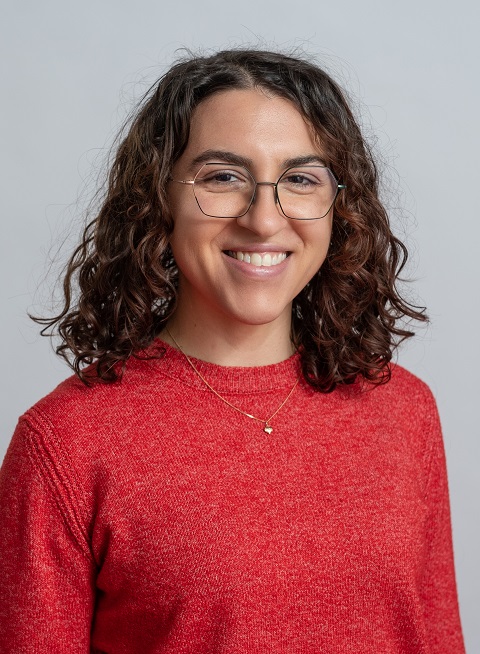Dr Amanda K. Pearce joined the Department of Chemistry as a Lecturer in September 2022. Her research is highly interdisciplinary, focusing on the synthesis and application of fluorescent polymer nanoparticles in a range of healthcare applications. She also acts as an advocate for science engagement with underrepresented groups in the community.
Amanda completed her Honour’s degree in Chemistry at the University of Queensland, where she stayed to obtain her PhD in 2015, under the supervision of Assoc. Prof. Kristofer Thurecht and Prof. Andrew Whittaker, focusing on the synthesis of targeted, drug-loaded hyperbranched polymers via RAFT polymerisation for in vivo prostate cancer applications.
She then moved to the University of Nottingham, UK in 2016 as a Research Fellow working with Prof. Cameron Alexander in an EPSRC Biomaterials Discovery Programme Grant to further her research on the design, synthesis, and characterisation of novel synthetic polymers for cancer drug delivery. In 2019, Amanda was promoted to Group Leader with Prof. Rachel O’Reilly at the University of Birmingham, where she was the lead researcher of the polymers and self-assembly subgroup, where she worked on projects using fluorescence lifetime as a tool to monitor particle self-assembly and biological behaviours.
Research areas
Research Areas
Research in the Pearce group focuses on the use of functional polymer materials to tackle important challenges in healthcare. These polymer materials have applications as drug delivery devices, molecular imaging agents and responsive probes for monitoring changes in local environments. The main application focus of my research is the treatment of intracellular infectious diseases, using new technologies in chemistry to address unmet needs in this crucial area. Research projects in the Pearce group are interdisciplinary in nature, spanning chemistry and biology and including training in aspects of organic and polymer synthesis, materials and particle characterisation, biological cell culture, microbiology and cellular imaging.
Development of assays for studying polymer-protein interactions
We are developing new assays for studying the interactions of polymer drug delivery devices in biological environments. Many highly potent drugs used to treat diseases such as cancer, inflammation, and infection, suffer from poor efficacy and uncontrolled side-effects leading to unacceptable levels of toxicity upon administration. Nanomedicines, where these drugs are packaged within a nanoparticle carrier, promises to improve on clinical outcomes by increasing drug solubility, stability, and bioavailability, while reducing non-specific toxicity. However, for ultimate clinical success, it is important to understand how nanomedicines interact with biological systems. Work in the Pearce group aims study important, fundamental interactions between polymer nanoparticles and key biological molecules such as proteins and immune cells.
Research Opportunities
Enthusiastic postgraduate students and postdoctoral researchers are welcome to apply at any time to work in the areas of polymer synthesis, novel nanoparticle design and cell analysis of nanomedicines. Fully funded positions will be advertised on the School webpages when available. Researchers and students with their own funding are welcome to email Amanda directly.
Amanda has a keen interest in encouraging participation in science regardless of background or societal status. She is currently the EDI staff rep for the School of Chemistry, and holds a Mental Health First Aider qualification.
She has previously been involved in widening participation activities such as the Levelling Up: Aspire Higher scheme through UoB Chemistry, which is designed to support students from Widening Participation backgrounds to study STEM at university. She is a registered host with the educational charity In2ScienceUK, hosting placements for school students from disadvantaged backgrounds in her research labs. She has previously acted as outreach liaison with local schools, including over Zoom during the Covid-19 pandemic.
